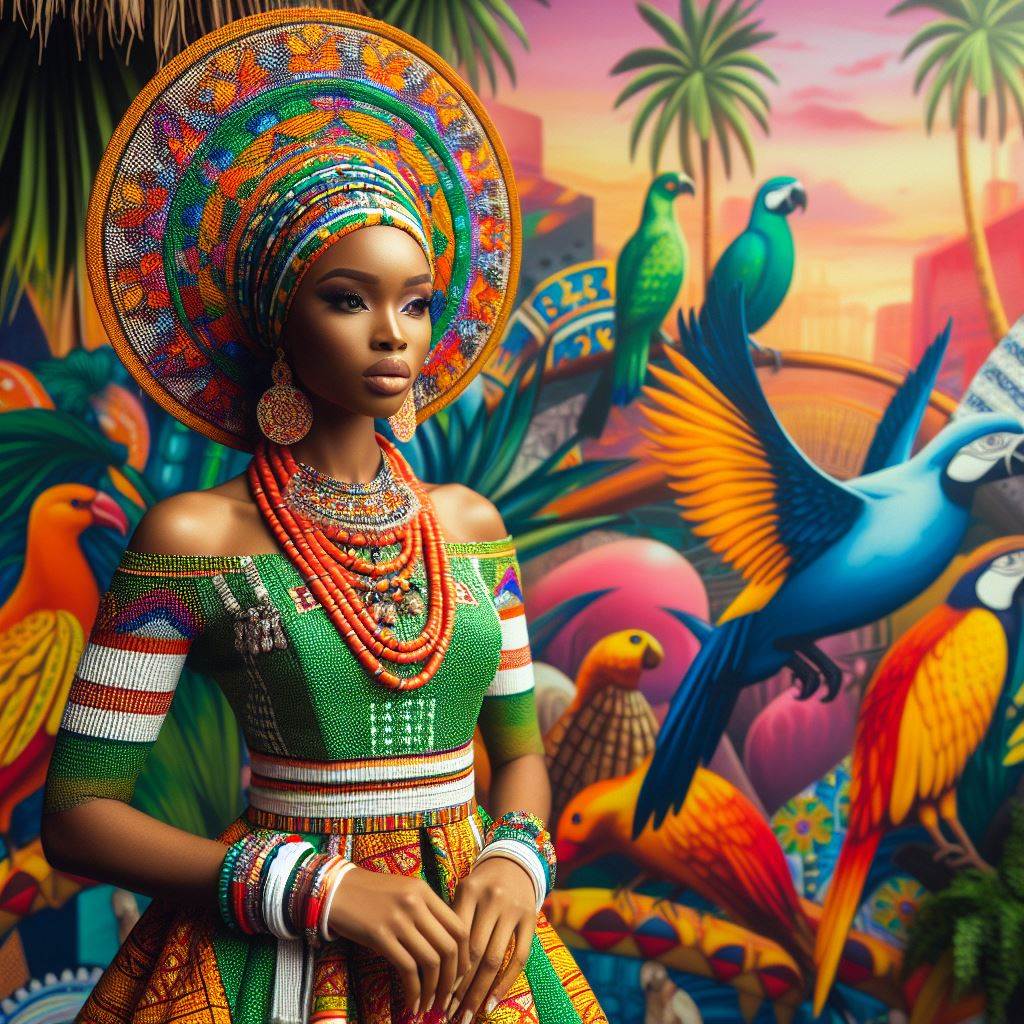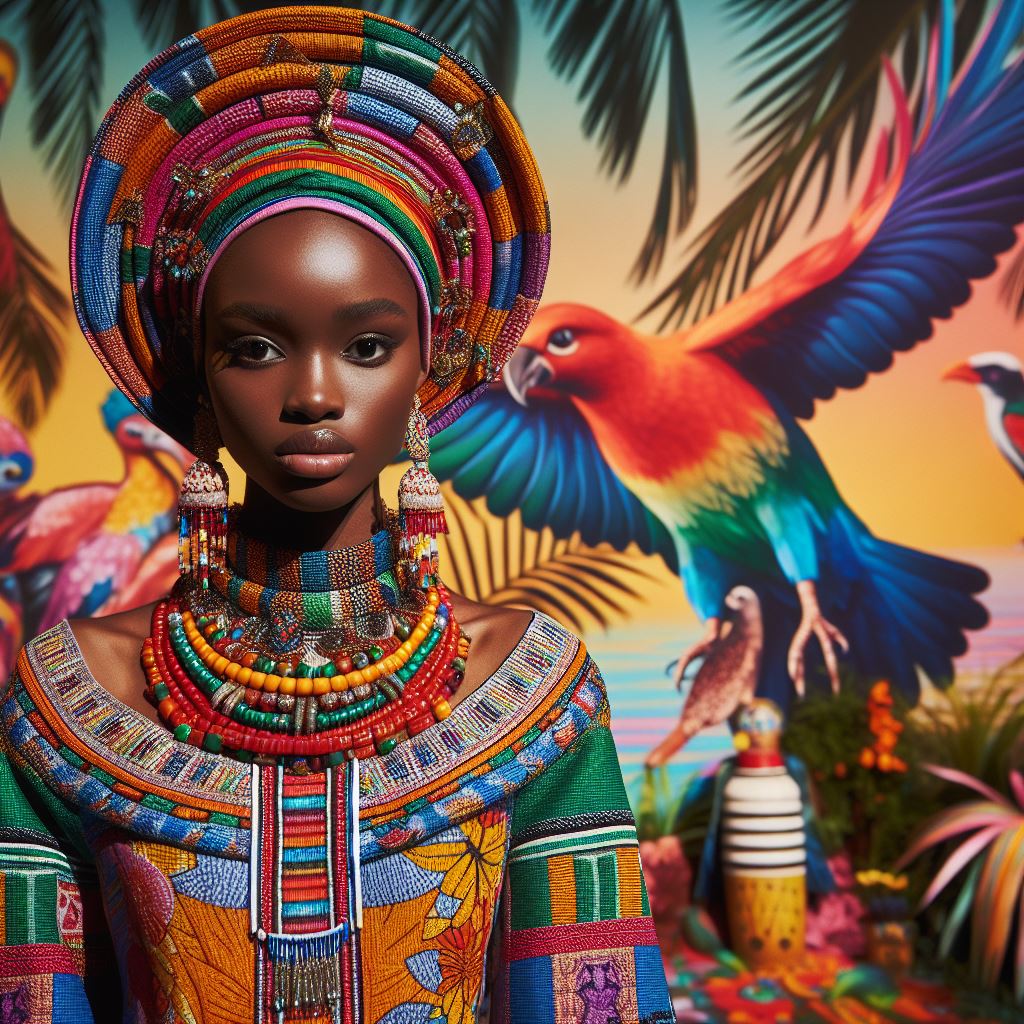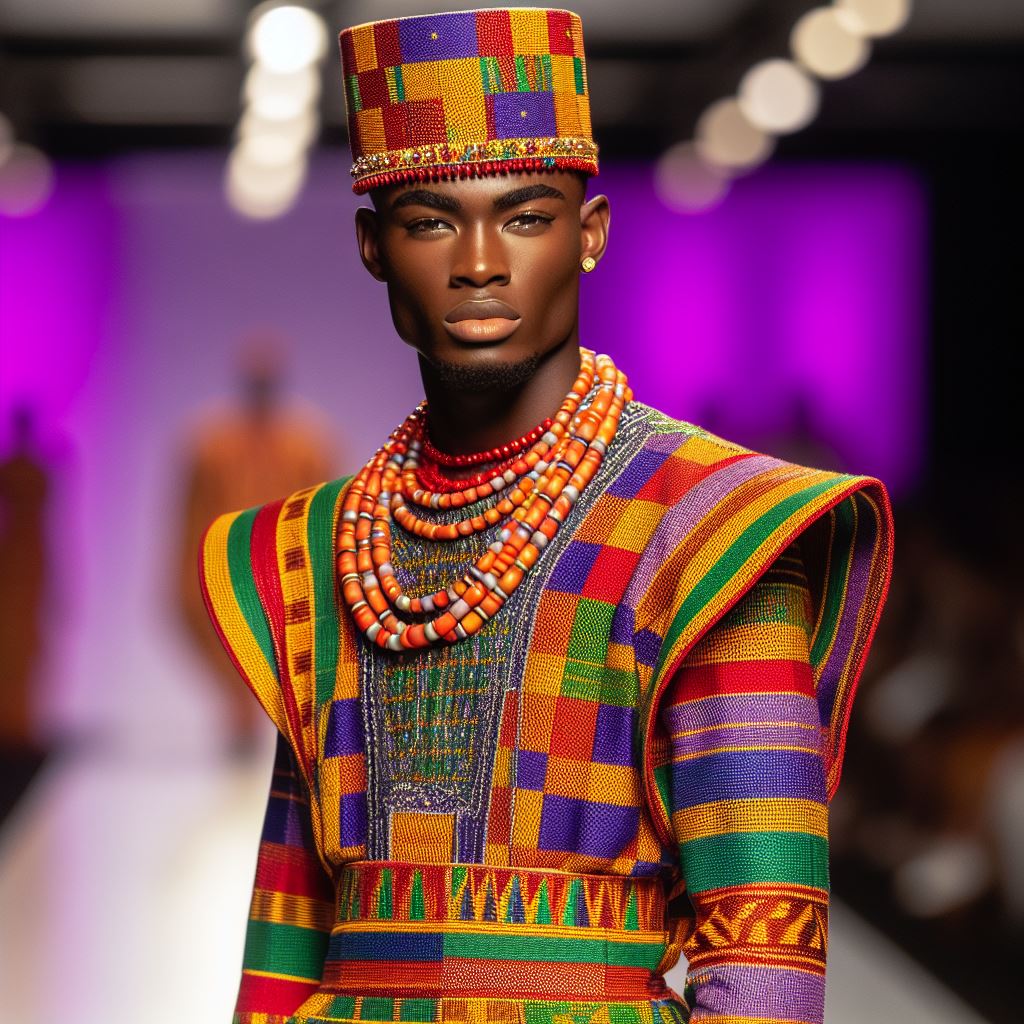Introduction
Overview of the Fashion Industry in Nigeria
The Nigerian fashion industry is vibrant and rapidly growing. Renowned for its unique styles and diverse cultural influences, it has gained international recognition.
Nigerian designers are celebrated for their creativity and innovation, making significant contributions to global fashion trends.
Fashion events like Lagos Fashion Week showcase the best of Nigerian design. These events attract international buyers and media, placing Nigerian fashion on the global map. The industry is not just about aesthetics; it’s a significant economic contributor.
The fashion sector provides employment opportunities for thousands of Nigerians. It spans various segments including textile manufacturing, retail, and fashion design. This growth presents substantial opportunities but also challenges that need strategic solutions.
Importance of Funding for Fashion Startups
Funding is crucial for the success of fashion startups. Without adequate financial support, many promising ventures struggle to survive. Initial capital is needed for product development, marketing, and establishing a brand presence.
Startups often face high production costs and competition from established brands. Access to funding helps them scale their operations and compete effectively.
It also enables startups to invest in quality materials and skilled labor, ensuring their products meet market standards.
Funding supports innovation and creativity in the fashion industry. It allows designers to experiment with new ideas and technologies. This leads to unique products that can capture the attention of both local and international markets.
Financial backing also helps in building a robust supply chain. Reliable suppliers and efficient distribution networks are essential for timely product delivery. This enhances customer satisfaction and brand loyalty.
Purpose of the Blog Post
This blog post aims to provide valuable insights into funding opportunities for Nigerian fashion startups. Many entrepreneurs are unaware of the various funding options available.
By highlighting these resources, we hope to empower them to secure the necessary support.
We will explore different types of funding, including grants, loans, and equity investments.
Understanding these options helps entrepreneurs make informed decisions about their financial strategies. Each type of funding has its own advantages and considerations.
We will also discuss specific grants and programs tailored for fashion startups. These initiatives often provide more than just financial support. They offer mentorship, training, and networking opportunities that are crucial for business growth.
Additionally, we aim to inspire confidence in Nigerian fashion entrepreneurs. Knowing that funding options are available can motivate them to pursue their dreams with greater determination. This, in turn, contributes to the overall development of the Nigerian fashion industry.
By the end of this blog post, readers will have a clear understanding of how to access funding. They will learn practical steps to apply for grants and secure investments. This knowledge is vital for turning creative visions into successful fashion enterprises.
Stay tuned as we delve deeper into the specifics of funding and grants for Nigerian fashion startups. We will provide practical tips and success stories to guide you on your entrepreneurial journey.
Challenges Faced by Nigerian Fashion Startups
Lack of Access to Capital
Nigerian fashion startups struggle to secure funding. Banks often hesitate to provide loans to new businesses. High interest rates further deter budding entrepreneurs.
Many rely on personal savings, which limits growth. Investors prefer tech startups over fashion ventures. This capital crunch stifles innovation and expansion.
Without sufficient funds, startups can’t purchase quality materials. They also face difficulties in hiring skilled labor. Consequently, the lack of access to capital hampers their competitiveness.
Limited Resources for Marketing and Production
Marketing resources are crucial for visibility. However, many Nigerian fashion startups can’t afford extensive marketing campaigns. They rely on social media, but reach remains limited.
Traditional advertising channels are expensive, reducing their options. Production resources are also scarce. Limited access to advanced machinery affects product quality.
Startups struggle with small-scale production, impacting their ability to meet demand. This shortage of resources hinders their ability to scale operations. Ultimately, their growth potential remains unrealized.
Competition from Established Brands
Established brands dominate the market. They have significant resources and customer loyalty. Nigerian fashion startups find it hard to compete. These big brands have extensive distribution networks.
They can also afford aggressive marketing strategies. This competition often overshadows new entrants. Additionally, established brands can offer lower prices due to economies of scale.
Startups can’t match these prices without sacrificing quality. The intense competition makes market penetration challenging for new brands.
Need for Professional Skills and Training
Professional skills are essential for business success. Many Nigerian fashion startups lack access to formal training. Fashion design and business management courses are often expensive.
As a result, founders rely on self-taught skills. This approach limits their strategic and operational capabilities. Furthermore, there’s a shortage of skilled labor in the fashion industry.
Startups struggle to find proficient designers, tailors, and marketers. Without professional skills, startups can’t compete effectively. Training programs are necessary to bridge this skills gap.
In general, Nigerian fashion startups face numerous challenges. Lack of access to capital restricts their growth. Limited marketing and production resources hinder their operations.
Competition from established brands makes market entry difficult. Finally, the need for professional skills and training affects their competitiveness. Addressing these challenges requires collective effort.
Government support, industry collaboration, and targeted training programs can help.
By overcoming these hurdles, Nigerian fashion startups can thrive. They have the potential to make a significant impact on the global fashion industry.
Read: Comparing Communication Arts and Mass Communication
Sources of Funding for Fashion Startups
When it comes to funding and grants for Nigerian fashion startups, there are several sources that entrepreneurs can explore to kickstart or grow their businesses.
From government grants to angel investors, the fashion industry in Nigeria offers a variety of opportunities for funding. Let’s take a closer look at some of the key sources of funding for fashion startups in Nigeria:
Government grants and loans
The government in Nigeria provides various grants and loans to support small and medium-sized enterprises in the fashion industry.
These grants can be used for business development, training, marketing, and other essential aspects of running a successful fashion startup.
Entrepreneurs can explore programs like the Youth Entrepreneurship Support (YES) initiative and the Bank of Industry Fashion Fund to access funding from the government.
Venture capital firms
Venture capital firms are another popular source of funding for fashion startups in Nigeria. These firms invest in early-stage businesses with high growth potential.
Fashion entrepreneurs can pitch their ideas to venture capital firms like GreenHouse Capital, Microtraction, and LeadPath Nigeria to secure funding for their startups.
Angel investors
Angel investors are wealthy individuals who provide capital to startups in exchange for equity ownership.
Fashion entrepreneurs can attract angel investors by presenting a compelling business plan and demonstrating the potential for high returns on investment. Some well-known angel investors in Nigeria include Jason Njoku and Tomi Davies.
Crowdfunding platforms
Crowdfunding platforms have become increasingly popular among fashion startups as a way to raise capital from a large number of individuals.
Entrepreneurs can create crowdfunding campaigns on platforms like Kickstarter, Indiegogo, and GoFundMe to showcase their designs and attract funding from fashion enthusiasts and supporters.
Bank loans and financial institutions
Traditional bank loans and financial institutions also offer financing options for fashion startups in Nigeria. Entrepreneurs can apply for business loans, overdraft facilities, and other financial products to fund their operations and expansion plans.
Banks like GTBank, Access Bank, and Zenith Bank provide specialized financial services for small businesses in the fashion industry.
Overall, Nigerian fashion startups have a range of funding options available to them, from government grants and loans to venture capital firms and angel investors.
By exploring these sources of funding and tailoring their strategies to attract the right investors, entrepreneurs can unlock the resources they need to bring their fashion businesses to life.
Read: Language Arts Courses: What to Expect in Nigeria
How to Prepare a Strong Funding Proposal
One of the key steps in securing funding for your Nigerian fashion startup is preparing a strong funding proposal. This document serves as your pitch to potential investors and grant providers, outlining why your business is worth investing in.
Here are some essential tips on how to create a compelling funding proposal that will increase your chances of securing the necessary funds:
Research potential investors and grant opportunities
Before you start drafting your funding proposal, it’s important to research potential investors and grant opportunities that align with your fashion startup’s goals and values.
Look for investors who have previously funded fashion businesses and grants that support entrepreneurs in the fashion industry.
By targeting the right funding sources, you can tailor your proposal to meet the specific criteria of each investor or grant provider, increasing your chances of success.
Develop a business plan and financial projections
A solid business plan is the foundation of any successful funding proposal. Outline your business model, target market, competitive analysis, marketing strategy, and revenue projections in detail.
Additionally, prepare financial projections that demonstrate the potential return on investment for potential funders.
Include a detailed budget, cash flow forecast, and break-even analysis to show that you have a clear plan for how you will use the funds effectively to grow your fashion startup.
Highlight unique selling points and target market
Clearly articulate what sets your Nigerian fashion startup apart from competitors and why it is a viable investment opportunity.
Define your unique selling points, such as your innovative designs, sustainable practices, or target market niche, and explain how these factors will contribute to the success of your business.
Additionally, provide an in-depth analysis of your target market, including demographic data, consumer behavior trends, and market size.
This information will help potential funders understand the potential market demand for your products and the scalability of your business.
Showcase previous work and achievements
Provide evidence of your fashion startup’s track record of success by showcasing previous work and achievements.
Include photos of your designs, collaborations with other brands or designers, press coverage, awards, and any other relevant accomplishments that demonstrate the quality and creativity of your products.
By highlighting your past achievements, you can build credibility with potential investors and grant providers, proving that your fashion startup has the potential to succeed in the competitive industry.
Seek mentorship and guidance from industry experts
Seeking mentorship and guidance from experienced industry experts can significantly strengthen your funding proposal.
Reach out to established fashion designers, business owners, or investors who can provide valuable insights and advice on how to improve your proposal.
By leveraging their expertise and network, you can refine your business strategy, presentation skills, and overall approach to securing funding.
Additionally, having a mentor or advisor who can vouch for the credibility and potential of your fashion startup can significantly increase your chances of success in attracting funding.
Read: Internship Opportunities for Communication Arts Students

Success Stories of Nigerian Fashion Startups
Profiling Successful Fashion Entrepreneurs Who Have Secured Funding
Nigeria’s fashion industry thrives with innovation and creativity. Many entrepreneurs have secured funding to elevate their brands. These success stories inspire aspiring designers to pursue their dreams.
Let’s explore the journeys of three remarkable Nigerian fashion entrepreneurs: Lisa Folawiyo, Kenneth Ize, and Mai Atafo.
Lisa Folawiyo
Founder of Jewel by Lisa, Lisa Folawiyo transformed traditional African prints into contemporary high fashion.
She secured initial funding from personal savings and family support.
Her brand’s unique aesthetic attracted international attention, leading to further investments. Folawiyo’s designs have graced global fashion weeks, earning her a solid reputation.
Kenneth Ize
Kenneth Ize revitalized traditional Nigerian weaving techniques with a modern twist. He secured funding through the prestigious LVMH Prize finalist award.
This recognition boosted his brand’s visibility, attracting more investors. Ize’s creations have been showcased at Paris Fashion Week, symbolizing his global success.
Mai Atafo
Mai Atafo, a renowned bespoke tailor, started his brand with personal savings and strategic networking. He secured funding through partnerships and collaborations.
Atafo’s dedication to quality and craftsmanship earned him a loyal clientele, including celebrities. His success highlights the importance of leveraging relationships in the fashion industry.
Their Journey from Startup to Established Brand
These entrepreneurs started with passion and a clear vision. They identified gaps in the market and crafted unique solutions.
Lisa Folawiyo’s Journey
Lisa Folawiyo began her journey by experimenting with Ankara fabric. She created intricate embellishments that set her brand apart. Initial challenges included limited funding and market acceptance.
Persistence paid off when her designs caught the eye of international fashion critics. Today, Jewel by Lisa is a celebrated name, featured in Vogue and other top magazines.
Transform Your Career with Expert Guidance
Get personalized mentorship consulting that’s tailored to your unique path. Our expert advice is actionable and exclusive.
Get StartedKenneth Ize’s Journey
Kenneth Ize’s journey started with a deep appreciation for Nigerian textile heritage. He collaborated with local weavers to create vibrant, handwoven fabrics.
Ize faced challenges in scaling production and gaining international exposure. Winning the LVMH Prize finalist spot was a turning point. His brand now enjoys global acclaim, symbolizing the perfect blend of tradition and modernity.
Mai Atafo’s Journey
Mai Atafo transitioned from a corporate job to pursue his passion for fashion. He faced initial resistance in establishing his bespoke tailoring brand.
By offering impeccable quality and personalized service, Atafo built a strong brand identity. Strategic collaborations and celebrity endorsements played a crucial role. Today, Mai Atafo stands as a leading name in Nigerian fashion.
Lessons Learned and Tips for Aspiring Fashion Startups
These success stories offer valuable lessons for budding fashion entrepreneurs.
- Leverage Personal Networks: Utilize your connections for initial funding and brand promotion. Personal relationships can open many doors.
- Stay True to Your Vision: Authenticity sets your brand apart. Maintain your unique voice and style.
- Embrace Challenges: Every setback is a learning opportunity. Adapt and grow from challenges.
- Seek Strategic Partnerships: Collaborations can provide funding, exposure, and valuable industry insights.
- Invest in Quality: High-quality products build brand loyalty and attract investment.
In short, The journeys of Lisa Folawiyo, Kenneth Ize, and Mai Atafo illustrate the power of determination and creativity. Their stories inspire and provide a roadmap for aspiring Nigerian fashion startups.
With passion, resilience, and strategic planning, the possibilities are endless.
Read: Impact of Communication Arts on Nigerian Media
Tips for Securing Funding for Fashion Startups
Securing funding for a fashion startup can be challenging but not impossible. Here are six actionable tips to help you navigate the process successfully.
Build a Strong Industry Network
Networking is key in the fashion industry. Connect with fellow designers, suppliers, and potential investors to expand your network.
Attend Fashion Events
Fashion events provide a platform to showcase your work and make valuable connections. Attend fashion weeks, trade shows, and exhibitions.
Showcase Your Work
Create opportunities to display your designs. Organize fashion shows, pop-up shops, or participate in collaborative projects to gain visibility.
Collaborate with Influencers and Brands
Partnering with influencers and established brands can amplify your reach and credibility. Seek collaborations that align with your brand values.
Persistence is Key
Securing funding takes time and effort. Be persistent in your pursuit, follow up on leads, and don’t be discouraged by rejections.
Resilience Matters
Expect setbacks along the way but remain resilient. Learn from failures, adapt your strategy, and keep pushing forward towards your goals.
Building a Strong Network Within the Industry
Networking isn’t just about collecting business cards; it’s about fostering genuine relationships. Attend industry mixers, seminars, and workshops to connect with like-minded individuals who can offer valuable insights and support.
Attend Fashion Events and Showcase Your Work
Fashion events are not only opportunities to see and be seen but also to make meaningful connections. Ensure your presence is felt by curating a compelling display of your designs and engaging with attendees to leave a lasting impression.
Collaborate with Influencers and Brands
Influencers wield significant power in shaping consumer preferences. Identify influencers whose audience aligns with your target market and propose mutually beneficial collaborations.
Similarly, leverage partnerships with established brands to gain access to their resources and customer base.
Be Persistent and Resilient in Your Pursuit of Funding
Securing funding is rarely a straightforward process. Prepare to face rejection and setbacks, but don’t let them deter you. Approach each opportunity with tenacity, learning from each experience and refining your approach along the way.
In fact, securing funding for your Nigerian fashion startup requires a strategic approach and perseverance.
By building a strong network, showcasing your work, collaborating with influencers and brands, and maintaining persistence and resilience, you can increase your chances of success in securing the necessary funding to bring your fashion dreams to life.
Conclusion
In wrapping up our discussion on funding and grants for Nigerian fashion startups, let’s recap the key takeaways.
Summary of Key Points
We’ve explored various avenues for funding, from government grants to private investors, highlighting the importance of research.
Encouragement for Nigerian Fashion Startups
To all Nigerian fashion startups, remember that funding is within reach. Your vision and passion can attract investors.
Call to Action
Now is the time to take action. Research funding options, craft compelling pitches, and reach out to potential investors.
Summary of Key Points
Throughout this blog post, we’ve delved into the diverse landscape of funding and grants available to Nigerian fashion startups.
From government initiatives like the Bank of Industry’s Fashion Fund to private investors seeking promising ventures, opportunities abound.
It’s essential for entrepreneurs in the fashion industry to conduct thorough research to identify the most suitable funding sources for their specific needs.
Additionally, we’ve emphasized the significance of developing a solid business plan and creating compelling pitches to attract potential investors.
Encouragement for Nigerian Fashion Startups
For Nigerian fashion startups, the journey to securing funding may seem daunting, but it’s important to remain resilient. Your creativity, innovation, and determination are your greatest assets.
Believe in the value of your brand and the impact it can make in the fashion industry.
Remember that every successful fashion brand started with a vision and took strategic steps to turn that vision into reality. With dedication and perseverance, you can overcome obstacles and achieve your goals.
Call to Action
Now is the time to take the next steps in securing funding for your fashion business. Start by conducting thorough research to explore available funding options and understand their requirements.
Develop a clear and comprehensive business plan that outlines your vision, goals, and strategies for growth.
Craft compelling pitches that effectively communicate the unique value proposition of your fashion brand and its potential for success.
Reach out to potential investors, whether they be government agencies, angel investors, venture capitalists, or crowdfunding platforms.
Be proactive in seeking opportunities and don’t be afraid to network and seek guidance from mentors and industry experts.
Remember that securing funding is a journey, but with determination and perseverance, you can turn your fashion startup dreams into reality.



